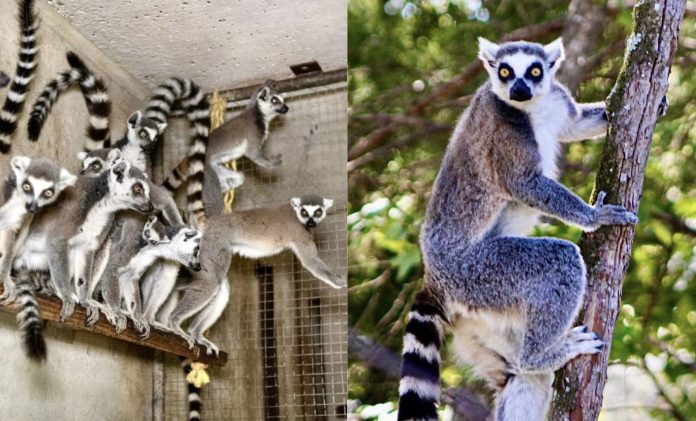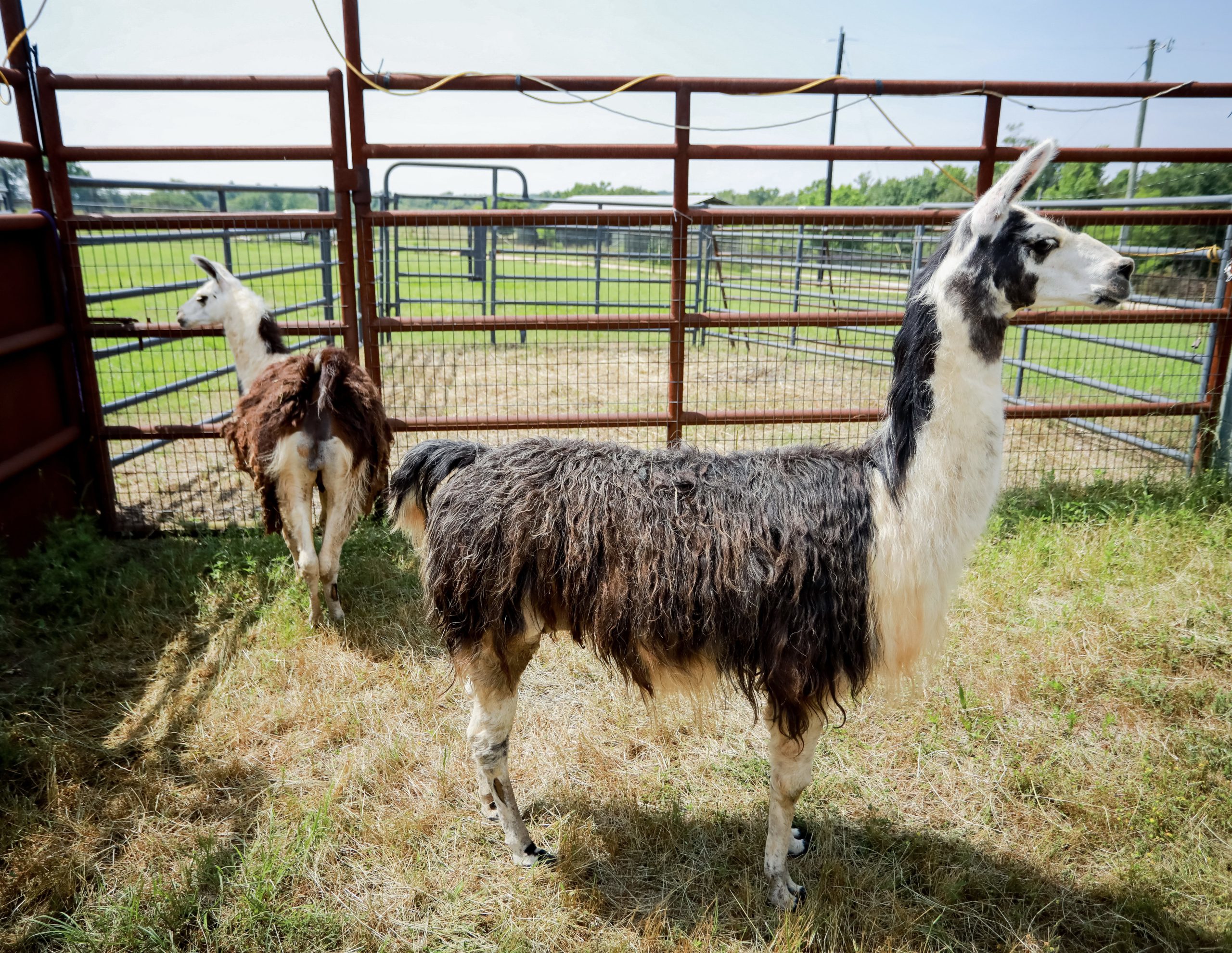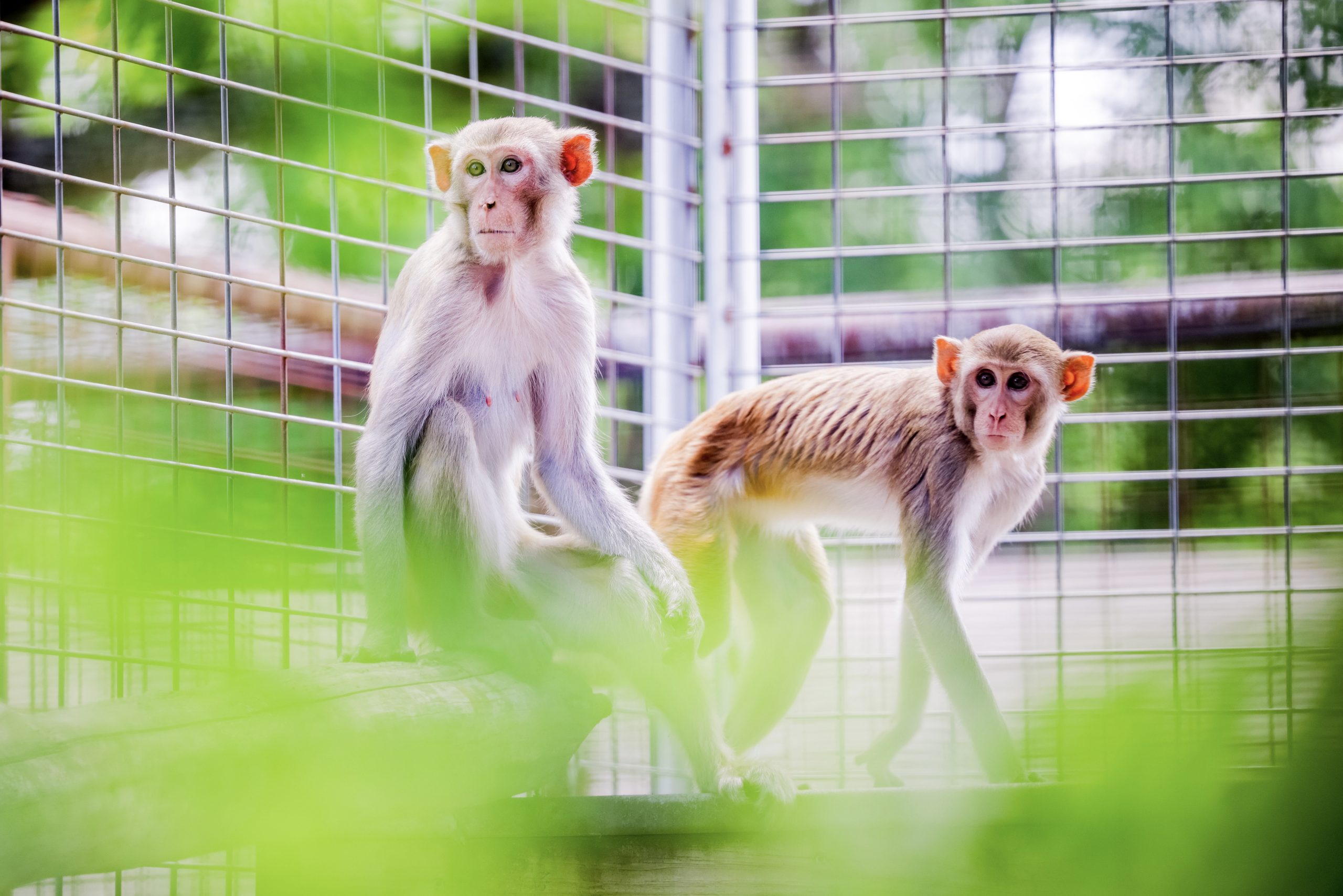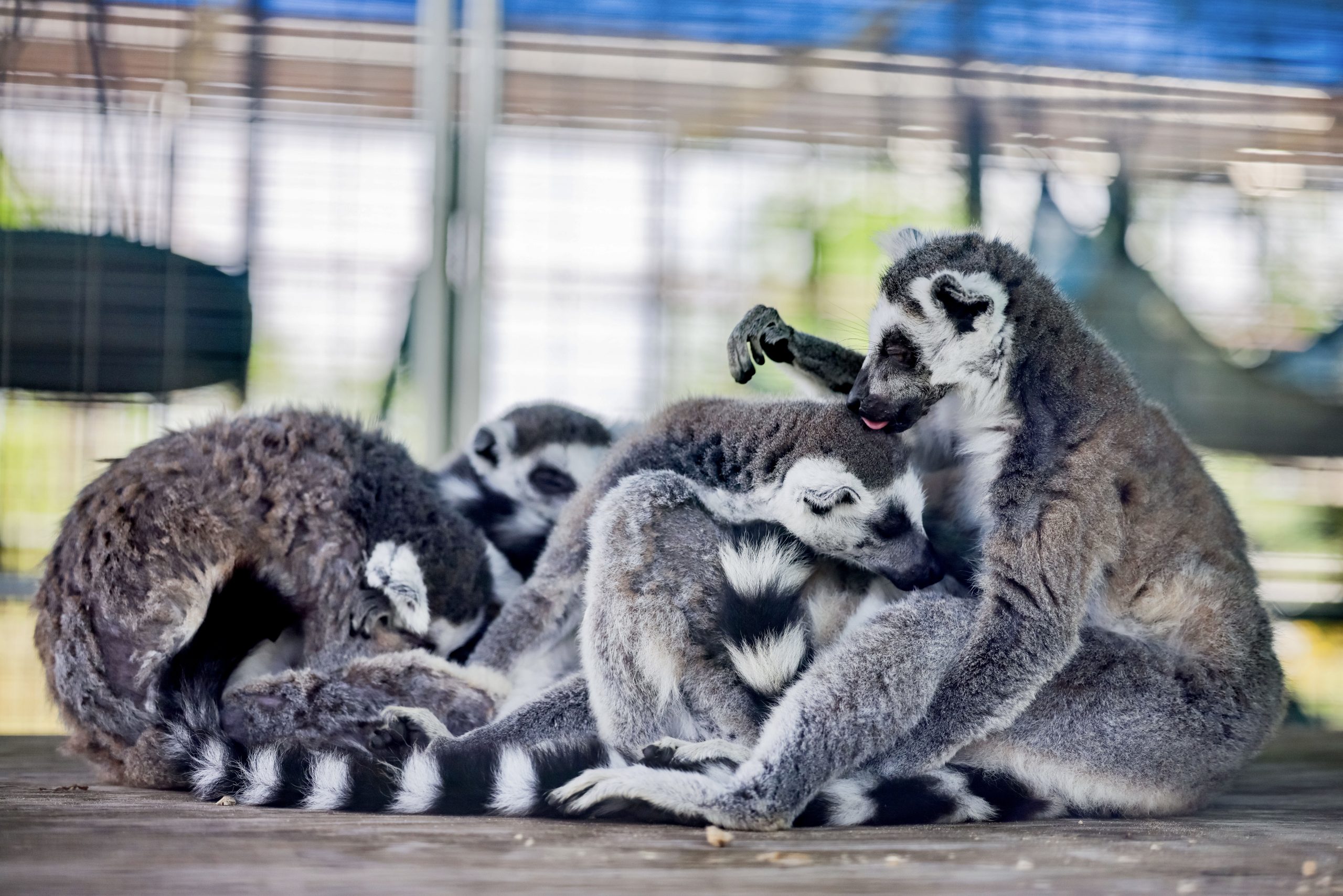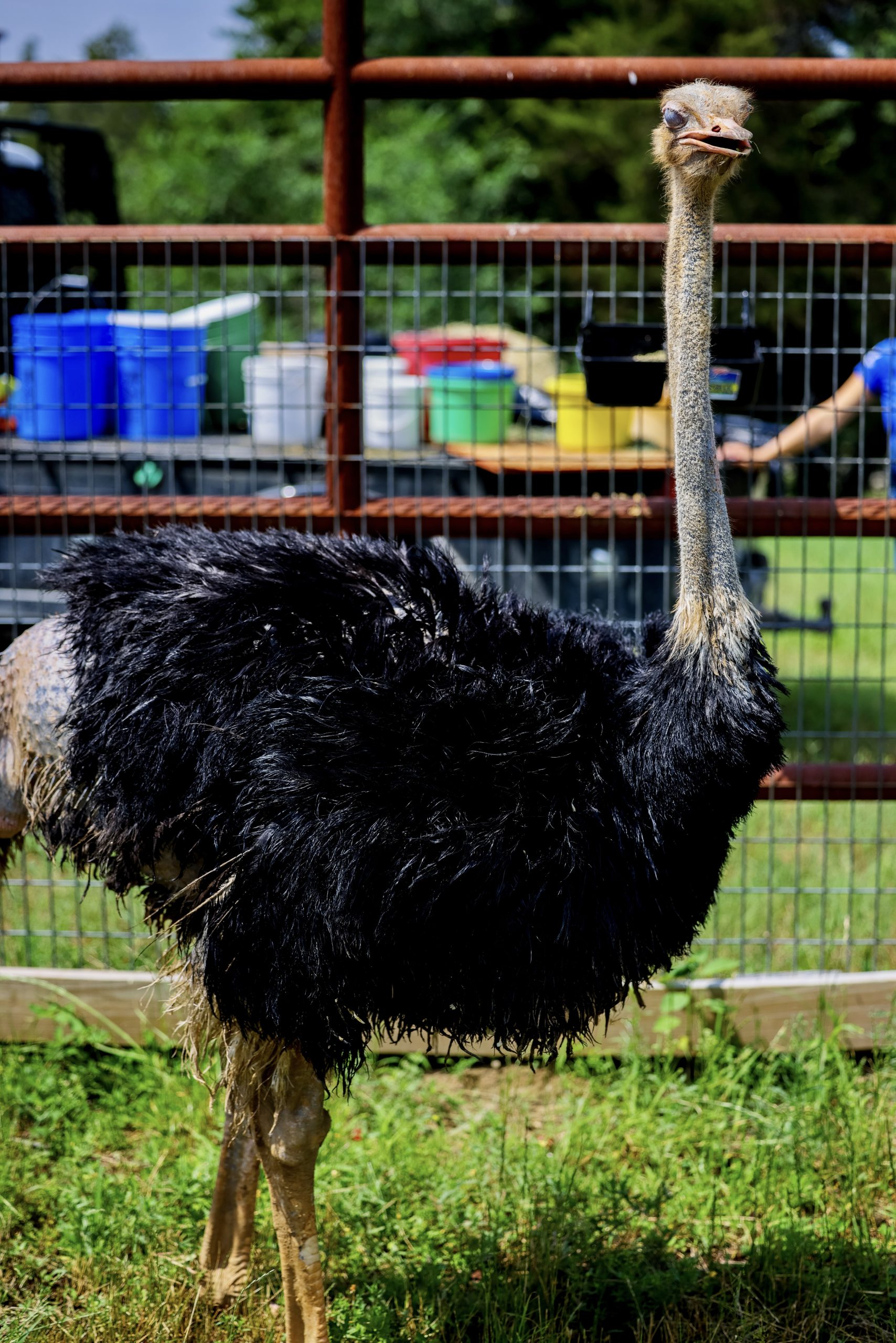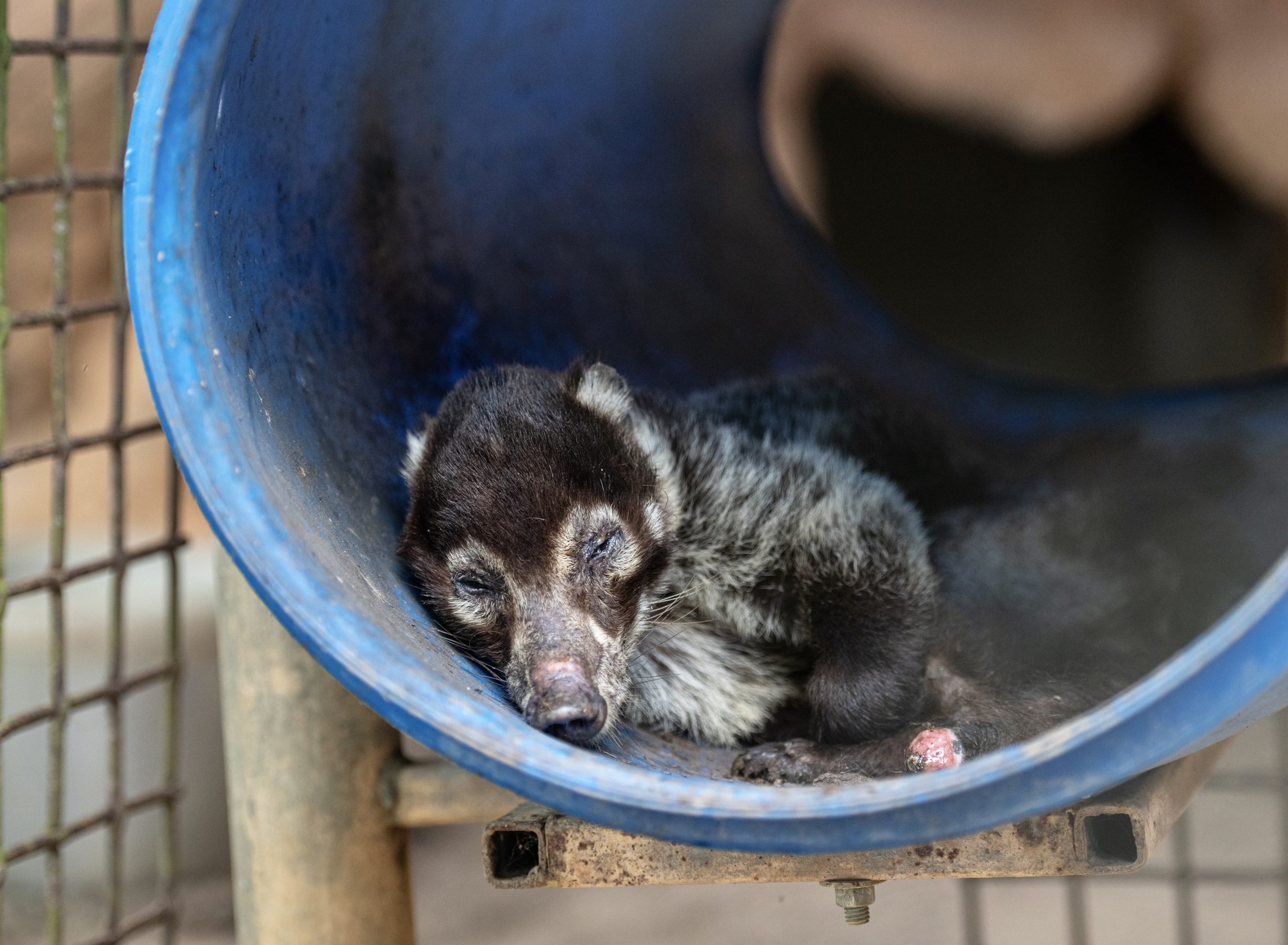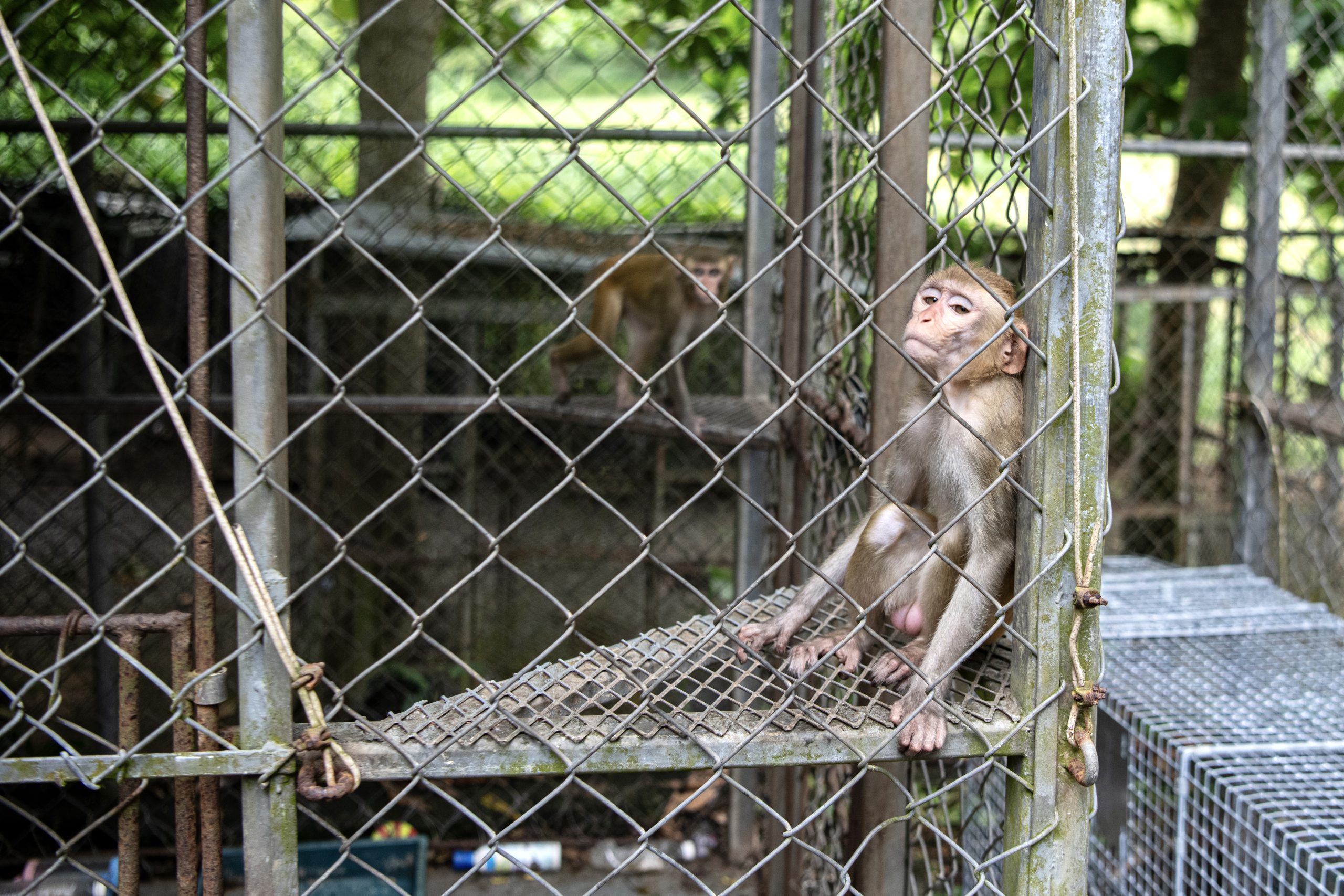Photos by: HSUS
Ten lemurs, four macaques, two llamas, two coatis, three emus, and an ostrich have made remarkable recoveries and are living their best lives at Black Beauty Ranch in Murchison, Texas. The wild animals were recently removed from a now-shuttered zoo and holding facility in Puerto Rico. Prior to being rescued, the animals were confined to overcrowded, barren spaces, without appropriate care.
Black Beauty Ranch is run by the Humane Society of the United States, which is successfully rehabilitating the animals and providing medical treatment, nutrition, and access to grass, trees, sunlight, fresh air, and enrichment. Now out of their required quarantine periods, the animals have been released into their larger habitats on the 1,400-acre property and are thriving.
-
Last week, the lemurs—including two juveniles named Sprout and Fern—moved into their new lush one-acre, open top habitat, where they immediately leaped from tree to tree, finally able to climb high and see the sky above.
-
Macaques El, Hopper, Max, and Robin, once confined to rusty, cramped cages, and huddled together out of fear, are now exploring leaves and branches for the first time and bellyflopping into pools of water.
-
Llamas Abbot and Costello are free of their formerly filthy matted coats and have bonded with sheep and goats in a two-acre pasture.
-
Reptar the ostrich has a new friend—a bighorn sheep named Lilly. They lie together during the morning sunrise. The feathers Reptar once pulled out from stress are slowly growing back.
-
Emus Blue, Delta, and Echo, who arrived severely underweight and listless, are gaining weight and strength and slowly being introduced into new pastures.
-
Coatis Booth and Sweets who lived in a bleak flat enclosure, are now enjoying a larger habitat where they can explore their natural climbing skills for the first time. Sweets arrived with a sparse and patchy coat and a seriously injured tail that had not been treated and was so painful that he had been chewing the tip off. The staff was barely able to recognize that he was a white-nosed coati. With proper medical treatment for his tail and skin, he now has a dark, thick coat, and is feeling much better.

